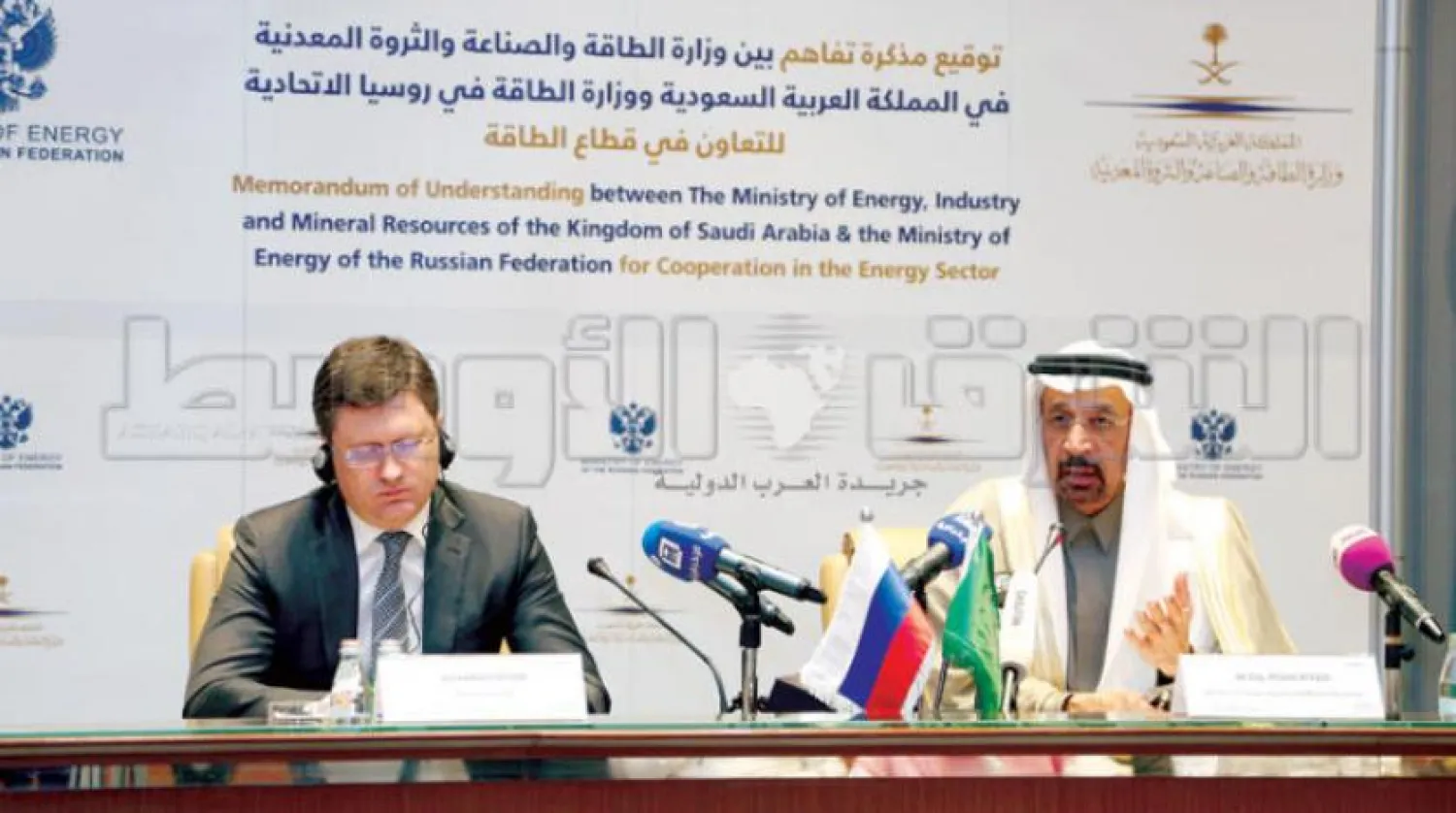Saudi Arabia's King Salman bin Abdulaziz Al Saud stressed his keenness to develop bilateral relations between Riyadh and Moscow, reiterating the need to bolster cooperation between the two countries in the field of energy. This came during the meeting between King Salman and Russian Minister of Energy Alexander Novak.
Minister of Energy, Industry and Mineral Resources Khalid al-Falih said at a press conference with his counterpart Alexander Novak in Riyadh that the leaderships in the Kingdom and the Russian Federation agree on the importance of economic cooperation between the two countries.
Falih disclosed his talks with his Russian counterpart, focusing on investment cooperation between the two countries. He pointed out that the Public Investment Fund and the Russian Direct Investment Fund are working to encourage Saudi investment within Russia and also attract Russian investments to the Kingdom.
"The energy fields in the Kingdom are open to Russian investments, as well as renewable energy. But the biggest and most important field currently being discussed with the Russian side is the investment in nuclear energy and the Nuclear Program of Saudi Arabia," Faleh said.
He pointed out that Russian company Rosatom is participating in the competition that will start in 2018. Two nuclear reactors will be established to produce electricity at a competitive cost in the country using the best technologies and harnessing nuclear energy for peaceful uses in the Kingdom.
Faleh announced that within two months, a Russian delegation will arrive in Saudi Arabia to hold several meetings. He also confirmed that both countries will continue to meet and discuss related matters to lead the world in the energy markets, especially oil sector.
"For the first time in more than 10 years, we see many regions of the world and centers of the economy, whether in developed or developing countries, growing at very healthy rates," he indicated, adding the global growth rate is expected to rise to 4 per cent in 2018, which gives a strong boost to economic growth and the prosperity of the entire global community.
For his part, Russian Energy Minister Alexander Novak indicated that Russia's participation in Riyadh at the World Energy Council, in cooperation with the World Organization for Energy and OPEC, presented an opportunity to meet King Salman.
"We discussed with King Salman the development of relations between the two countries, the development of economic and trade relations and our joint cooperation in coordinating oil and other fields. We have received a good incentive to develop relations between our two countries and economies," said Novak.
The Russian minister added that Riyadh talks discussed all areas of cooperation, and most importantly in the field of oil and energy, indicating that Saudi Aramco will discuss several projects with major Russian oil companies.
Novak also said that the state-owned nuclear company Rosatom had applied for a tender to construct two power plants in Saudi Arabia.
"We also discussed the issue of climate change and signed a joint statement between our two countries. We support the agreement. We believe there is a need to develop technology, use clean technology and hydrocarbons essential for this energy, and we have discussed the development of renewable energy and new technologies," he told the press.
Novak concluded that implementation of agreements between OPEC and other organizations have also been discussed, as well as creating balance in the market. He confirmed the meeting with Saudi Arabia's energy minister in April which will discuss market's situation.









